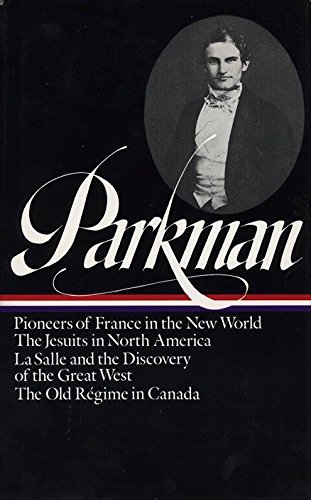« April 2019 | Main | June 2019 »
May 2019 Archives
May 1, 2019
Antarctic France

When the Emperor Charles the Fifth beleaguered Algiers, his camps were deluged by a blinding tempest, and at its height the infidels made a furious sally. A hundred Knights of Malta, on foot, wearing over their armor surcoats of crimson blazoned with the white cross, bore the brunt of the assault. Conspicuous among them was Nicolas Durand de Villegagnon. A Moorish cavalier, rushing upon him, pierced his arm with a lance, and wheeled to repeat the blow; but the knight leaped on the infidel, stabbed him with his dagger, flung him from his horse, and mounted in his place. Again, a Moslem host landed in Malta and beset the Cite Notable. The garrison was weak, disheartened, and without a leader. Villegagnon with six followers, all friends of his own, passed under cover of night through the infidel leaguer, climbed the walls by ropes lowered from above, took command, repaired the shattered towers, aiding with his own hands in the work, and animated the garrison to a resistance so stubborn that the besiegers lost heart and betook themselves to their galleys. No less was he an able and accomplished mariner, prominent among that chivalry of the sea who held the perilous verge of Christendom against the Mussulman. He claimed other laurels than those of the sword. He was a scholar, a linguist, a controversialist, potent with the tongue and with the pen, commanding in presence, eloquent and persuasive in discourse. Yet this Crichton of France had proved himself an associate nowise desirable. His sleepless intellect was matched with a spirit as restless, vain, unstable, and ambitious, as it was enterprising and bold. Addicted to dissent, and enamoured of polemics, he entered those forbidden fields of inquiry and controversy to which the Reform invited him. Undaunted by his monastic vows, he battled for heresy with tongue and pen, and in the ear of Protestants professed himself a Protestant. As a Commander of his Order, he quarrelled with the Grand Master, a domineering Spaniard; and, as Vice-Admiral of Brittany, he was deep in a feud with the Governor of Brest. Disgusted at home, his fancy crossed the seas. He aspired to build for France and himself an empire amid the tropical splendors of Brazil. Few could match him in the gift of persuasion; and the intrepid seamen whose skill and valor had run the gantlet of the English fleet, and borne Mary Stuart of Scotland in safety to her espousals with the Dauphin, might well be intrusted with a charge of moment so far inferior. Henry the Second was still on the throne. The lance of Montgomery had not yet rid France of that infliction. To win a share in the rich domain of the New World, of which Portuguese and Spanish arrogance claimed the monopoly, was the end held by Villegagnon before the eyes of the King. Of the Huguenots, he said not a word. For Coligny he had another language. He spoke of an asylum for persecuted religion, a Geneva in the wilderness, far from priests and monks and Francis of Guise. The Admiral gave him a ready ear; if, indeed, he himself had not first conceived the plan. Yet to the King, an active burner of Huguenots, Coligny too urged it as an enterprise, not for the Faith, but for France.
In secret, Geneva was made privy to it, and Calvin himself embraced it with zeal. The enterprise, in fact, had a double character, political as well as religious. It was the reply of France, the most emphatic she had yet made, to the Papal bull which gave all the western hemisphere to Portugal and Spain; and, as if to point her answer, she sent, not Frenchmen only, but Protestant Frenchmen, to plant the fleur-de-lis on the shores of the New World.
Two vessels were made ready, in the name of the King. The body of the emigration was Huguenot, mingled with young nobles, restless, idle, and poor, with reckless artisans, and piratical sailors from the Norman and Breton seaports. They put to sea from Havre on the twelfth of July, 1555, and early in November saw the shores of Brazil. Entering the harbor of Rio Janeiro, then called Ganabara, Villegagnon landed men and stores on an island, built huts, and threw up earthworks. In anticipation of future triumphs, the whole continent, by a strange perversion of language, was called Antarctic France, while the fort received the name of Coligny.
Villegagnon signalized his new-born Protestantism by an intolerable solicitude for the manners and morals of his followers. The whip and the pillory requited the least offence. The wild and discordant crew, starved and flogged for a season into submission, conspired at length to rid themselves of him; but while they debated whether to poison him, blow him up, or murder him and his officers in their sleep, three Scotch soldiers, probably Calvinists, revealed the plot, and the vigorous hand of the commandant crushed it in the bud.
May 7, 2019
D-Town sports mania


For twelve straight days now, teams from my beloved hometown have competed in playoff contests: many of them, what with overtimes, interminable commercial breaks and whatnot, extending into the wee hours of the Eastern Time Zone morning. I guess I’ll sleep when I’m dead.
The Denver Nuggets feature the Serbian Doughboy, Nicola Jokić, a singular big man with fantastic touch and court vision; Jamal Murray, a tough Canadian kid with a sweet shot; Gary Harris, a classic Michigan State product who does everything well, especially perimeter defense; the aged veteran Paul Millsap, steady defender with great rebounding intuition who has added an impressive offensive game; alongside a lengthy roster of appealing players who have, all of them, inspired us with their effort and resilience.
The Colorado Avalanche feature one of the best top lines in the National Hockey League. Swedes, Finns and a blue-color Canadian kid named MacKinnon whose extraordinary speed on the ice can be observed easily by even the most novice fans of hockey. Two of the Avs’ best defenders, meanwhile, are only twenty years old, one of whom, Cale Makar, having just finished his UMass collegiate career, showed up in Denver for his first NHL game in the middle of a playoff series. He recorded a goal and an assist.
Last night, at just after 1am Eastern, Gabriel Landeskog redirected a puck into the net for an overtime win against the San Jose Sharks. Picture me, with my whole household catching peaceful zzzzs, silent-screaming into my fists and leaping around in the loudest quiet celebration dance this side of the Mississippi River. That series goes to Game 7 tomorrow night (9pm Eastern start).
Nuggets and Trailblazers go tonight, in a huge Game 5 back in Denver. This game starts at 10:30p Eastern. Sweet soupspoons.
I’m loving every minute of it. Go Nuggs! Go Avs!
May 12, 2019
Vincent Lambert case update
Things are looking grim again for Vincent Lambert, the Frenchman whose wife and some other relatives have been trying to have him dehydrated to death for approximately six years. Thanks to the persistence of Vincent's mother Viviane and her lawyers, Vincent has been rescued from more than one attempt at killing him and is still being fed and dehydrated years after others would have given up.
But now the Supreme Court of France (as I understand it) has ratified the decision of doctors to dehydrate Vincent to death. It's important to understand that the legal situation is somewhat different from that of Terri Schiavo. As I understand it, the matter is left in the hands of the doctors. This is why the Committee to Support Vincent Lambert has tried to get him transferred, but those attempts have been unsuccessful. (A transfer might also have resulted in Vincent's receiving some physical therapy in order to renew or maintain his ability to swallow and be fed by mouth. Expert opinions differ on whether he is in a minimally conscious state or a so-called "vegetative" state, but it is not implausible that he could have profited from some therapy which he has not received while his wife has been attempting to have him killed all these years.) In Terri's case, a court actually ordered the nursing home to withdraw Terri's food and water. The French court apparently has merely allowed this. Doctors could still quite legally make a different decision.
May 20, 2019
Blaming the losers
It is a common though unfortunate characteristic of human nature to want to blame the losers in any war for their loss. What did they do wrong? They must have done something wrong, or they would not have lost.
A different approach is much more open to seeing losses as glorious and heroic. Small bands of patriots or heroes fight to the best of their ability, in the face of overwhelming odds, and are overcome at the last by sheer force or even by treachery. They are to be praised, not blamed. Their names go down in history as an inspiration to those who come later and serve what they served, bringing life out of the ashes once more. To quote Mr. Smith, lost causes are the only causes worth fighting for.
Of course, in any given real historical struggle, these two options are not mutually exclusive. The losing side may have made strategic mistakes, seen in hindsight, at any point along the way, but they may still be praiseworthy, and treachery or overwhelming force may still be the main cause of the loss.
In politics and history, the desire to blame the losers strongly is for some people almost irresistible, a tendency that I find puzzling. It seems to flow from a desire to have a gigantic Story (with a capital S) to tell about What Went Wrong and how we got where we are. It may also arise from a desire to appear even-handed in hindsight. If one blames one's own side (as it existed decades ago or even centuries ago), this shows one's sapient open-mindedness. The desire to blame the losers also sometimes arises from frustration: "We lost. We were suckers. How can we be sure not to be suckers again now?" It can also arise from some ideological agenda. For example, if one really does believe that the American founding was ill-done and ideologically wrong-headed, then one may try to trace a direct line from, "All men are created equal and are endowed by their creator with certain inalienable rights," etc., to the present abortion holocaust, despite the fact that that is a very hard sell, both logically and historically. On this view, America has fallen morally because America as such was fatally flawed from the beginning. The desire to recast history in literary terms, so that nations become like tragic characters with a fatal flaw, is hard for some to resist.
All of this musing is the lead-up to my rejecting (or at least very greatly qualifying) a certain narrative concerning what has happened to American conservatives in the last one hundred years or so. It looks like we have lost the culture wars, and the temptation to blame "us," or some historical version of "us," is for some people apparently irresistible.
The blame narrative that I want to respond to goes approximately like this:
